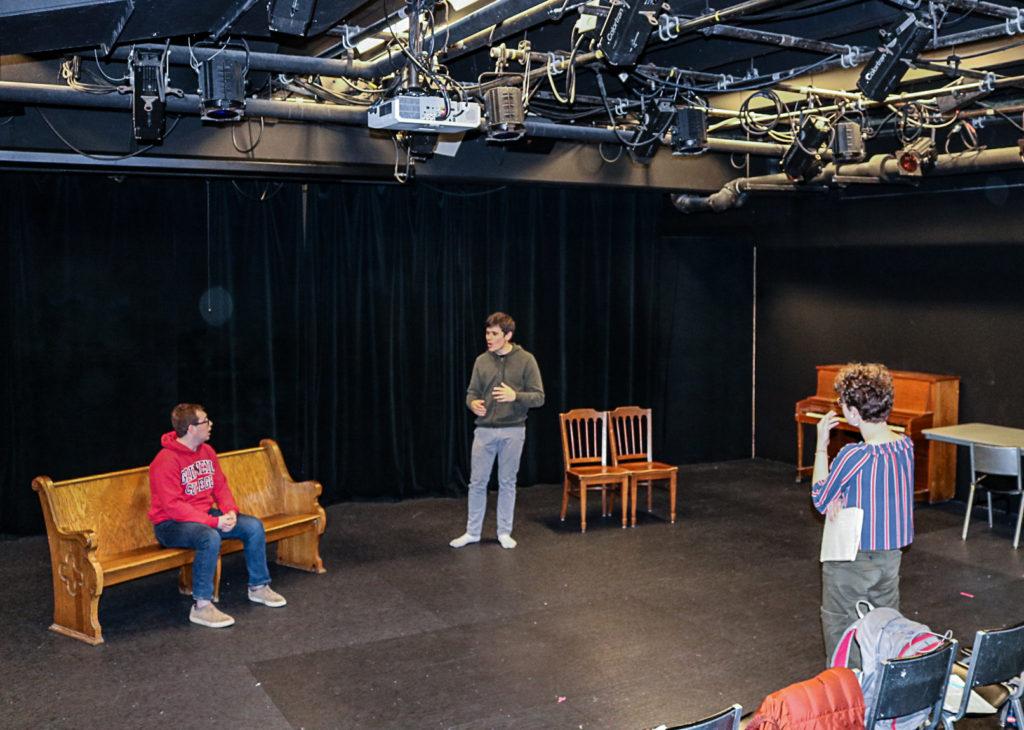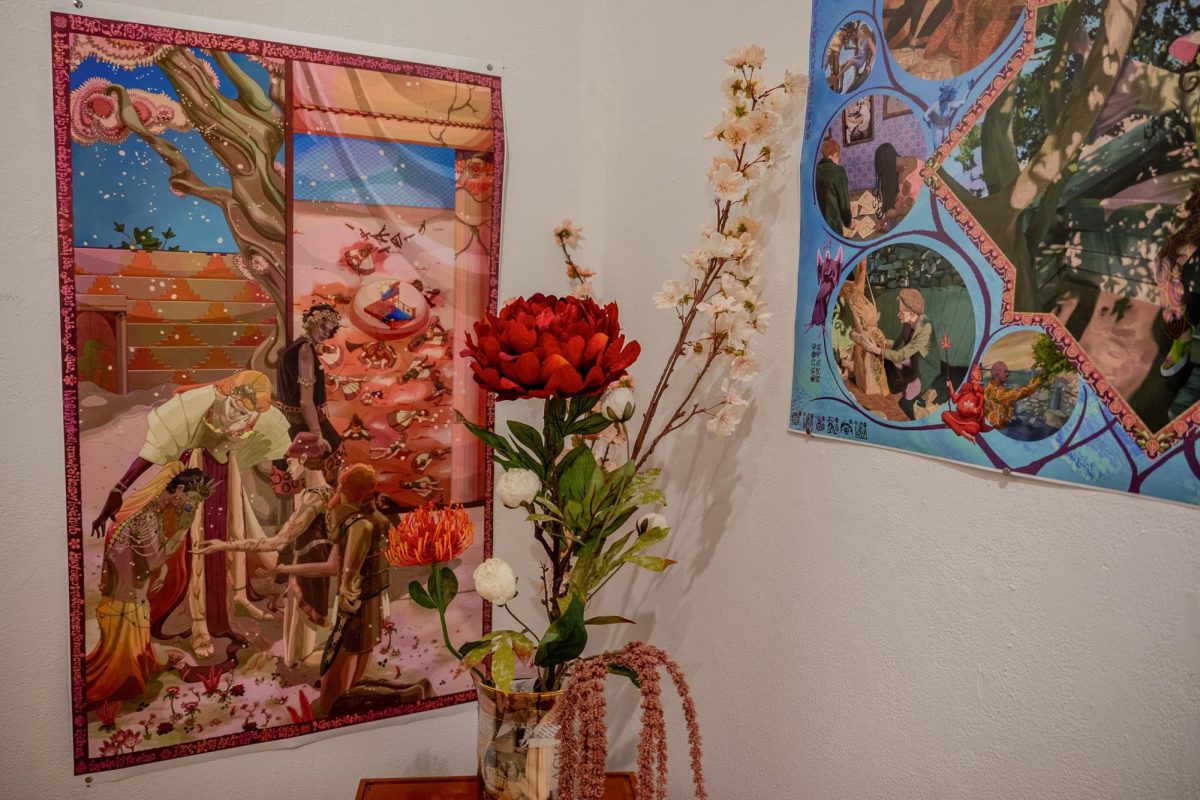
Next weekend, performances for the student-directed production “The Zoo Story” by playwright Edward Albee will take place at the Loft Theatre at the Grinnell Arts Center in downtown Grinnell. Over the course of the semester, director Nicole Rosengurt ’20 has worked with actors Harry Gale ’20 and Jacob Leder ’20 in this two-character play that Rosengurt describes as “surreal” and “slightly confusing.”
“It’s about one stranger approaching another stranger in a park on a bright Sunday afternoon and trying to start a conversation. And then we go from there,” Rosengurt said. “[The stranger] goes through increasingly more interesting, convoluted, outlandish methods in order to elicit some kind of connection … we end up seeing what it does to a person to be pushed so far.”
Rosengurt, Gale and Leder’s production was made possible through the Open Space program, which Leder described as “a chance for students to direct their own show not for credit.” The Theatre and Dance department’s relationship with the Grinnell Area Arts Council allows students to use the Loft Theatre as a performance space, “so we can kind of have a convergence of students, faculty and community members to come and see theatre and kind of mingle and be together,” Leder said.
While Gale and Leder are double majors in theatre and dance and political science, Rosengurt explained that students do not have to study theatre academically to get involved with such productions.
“I’m not a [theatre and dance] major but I’ve been really involved with the department since my first year. I’ve done one mainstage [show]. I’ve been in one-acts every year and I directed a one-act last semester … I’ve just been hungry for opportunities to be involved with theatre here at Grinnell,” she said. “It’s been great to be able to have these opportunities even while not being an official major.”
Getting involved, they explained, often means getting to exercise more autonomy than students might have at a larger university.
“The incredible part of theatre at Grinnell is, if you want to be fully involved in the [theatre and dance] department—if you’re a major, if you’re not—you kind of have to do everything … if you want to be part of the community you have to direct, you have to design … you have to do all of these things,” Leder said.
“You are able to try yourself out in every role because there is a need for every one of those roles … because we’re not conservatory, if we want to do stuff, we have to make it happen,” Rosengurt said.
Leder believes a major roadblock to collaboration at large universities is “a limited amount of spots and competition. And because that’s absent here … the collaborative spirit is allowed to thrive and it’s not obstructed by those things … That’s why we’re doing this production at the end of the day. If we were at Michigan we would not be doing this, they would not have given us permission to do this.”
This collaborative spirit has paved the way for burgeoning actors to learn from one another. “We do pretty intense character work,” Gale said.
“[Rosengurt] has a clear vision,” said Leder. “It’s felt like acting class in a lot of ways … she’s giving us observations, she’s helping us improve as actors … it makes the show better, but it goes so far beyond the show and becomes something that’s individually rewarding.”
“This play is about trying to form a connection with somebody even though you are extremely different and coming from different worlds,” Rosengurt said. “And then, trying to see how far someone would go … in order to find a link with another human being.”
When addressing the name of the play, Rosengurt said, “I’m not going to tell you how the zoo features in it yet … it’s up to you guys to find out.”




















































